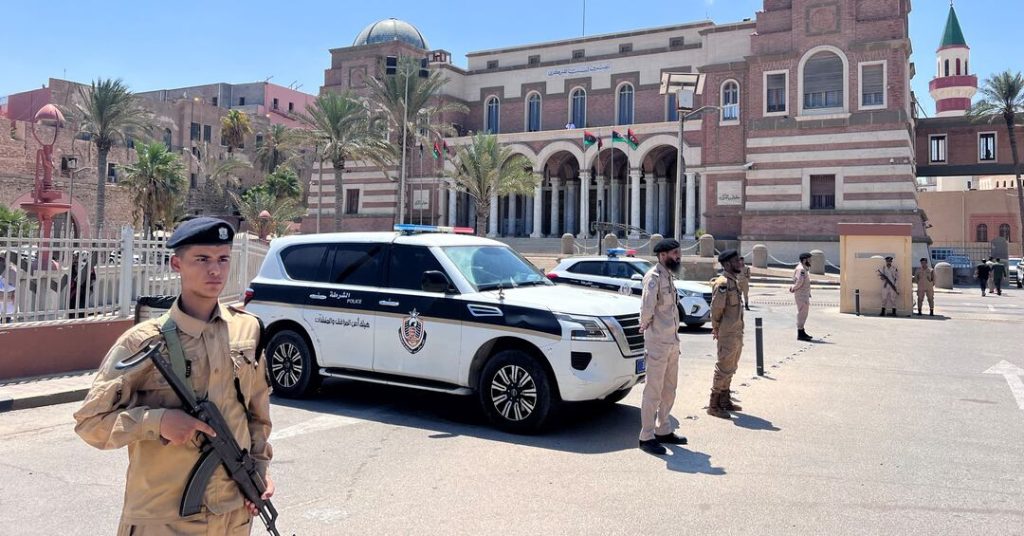Delegates from Libya’s eastern and western regions have finalised procedures, criteria, and timelines for appointing a governor, deputy governor, and board of directors for the Central Bank, according to a statement from the United Nations Support Mission in Libya (UNSMIL).
This agreement aims to alleviate a crisis regarding control of the Central Bank and oil revenues, which has severely impacted Libya’s oil production and exports.
Since 2014, Libya has been divided into rival authorities in the east and west, a situation that arose from the chaos following the fall of Muammar Gaddafi during a NATO-backed uprising in 2011.

The recent turmoil surrounding the Central Bank began when the head of the Presidential Council in Tripoli, Mohammed Al-Menfi, sought to replace long-serving Central Bank Governor Sadiq Al-Kabir last month. This move prompted eastern factions in Libya to halt oil flows from the country’s oil fields in protest.
As a result, Libya’s National Oil Corporation reported a significant decline in oil production, dropping by more than half from typical levels as of 28 August, and has not disclosed any updated figures since then.
The UN Libya Mission indicated that representatives from the House of Representatives in Benghazi (east) and the High State Council in Tripoli (west) had reached a consensus on appointing new leadership for the Bank, although no names were provided. The mission also announced a signing ceremony scheduled for Thursday, which will include the international community.


